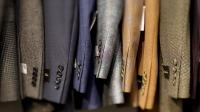Illegal exchange of information between clothing retailers
On 24 June 2020, the Competition Council made a decision in two cases involving illegal exchange of information between competing clothing retailers. The decisions show that suppliers/manufacturers in the wholesale market who are also active on the retail market must be careful when exchanging information about prices, discounts and volumes with other retailers.

The cases in brief
Based on material seized at the dawn raid, the Competition and Consumer Authority found that Hugo Boss, the German menswear brand, and Kaufmann and Ginsborg, two Danish retail chains, had exchanged competitively sensitive information in violation of the competition rules.
In the first case, Hugo Boss and Kaufmann were found to have exchanged information from January 2014 to November 2017, and in the second case Hugo Boss and Ginsborg were found to have exchanged information from December 2014 to April 2018.
Hugo Boss is active as both wholesaler and retailer selling directly to consumers, while the retailers Kaufmann and Ginsborg both carry Hugo Boss in their range of products, which also includes other brands.
The Competition Council's decisions
Both decisions are based on email correspondence between the parties in which various sensitive information was exchanged and discussed - from prices, discounts and volumes to place and time of clearance sales and/or range of products to be offered in future sales. The emails document that the exchange of information started as an inquiry by the retailers, and that Hugo Boss responded by providing information about its strategic, specific and future affairs.
The cases are particularly characterised by the fact that Hugo Boss acts as both supplier to the retailers and as their competitor in the retail market. Both Hugo Boss and the retailers argued that the case involved lawful exchange of information between a wholesaler and its retail customers. The Competition Council disagreed, however, finding that Hugo Boss disclosed information about the activities of its own retail stores. The information was therefore deemed to have been exchanged between competitors in violation of the competition rules.
The Council notes in both decisions that, taking into account that the parties are competitors, the exchange of information was intended to restrict competition. It also notes that the exchange of information may have resulted in lower discount rates and may have aligned - and in some cases even reduced - the range of products on sale. All to the detriment of consumers.
The Competition Council intends to transfer the cases to the State Prosecutor for Serious Economic and International Crime for the purpose initiating criminal investigations when any appeals have been finally determined. The parties have still not indicated if they intend to appeal against the Council’s decisions.
Special attention is required by manufacturers
The decisions show that a company which is active at different levels in the chain of distribution must pay special attention when exchanging information with customers if the company also competes with said customers in a downstream market.
Read the Competition Council's decisions (in Danish):
Exchange of information between Hugo Boss and Kaufmann.
Exchange of information between Hugo Boss and Ginsborg.
Contact


